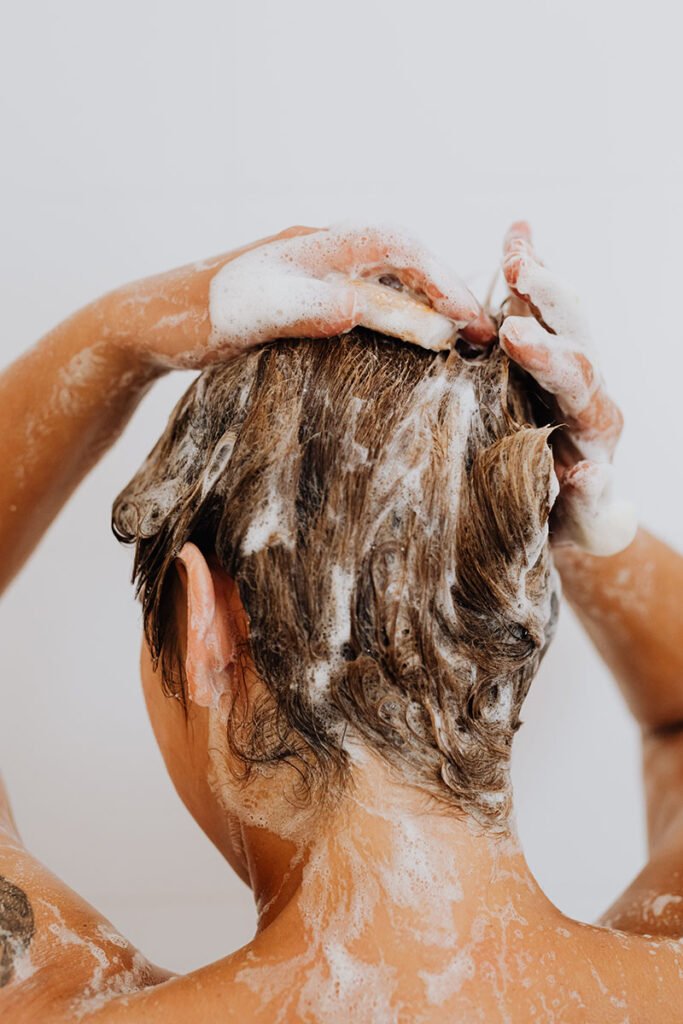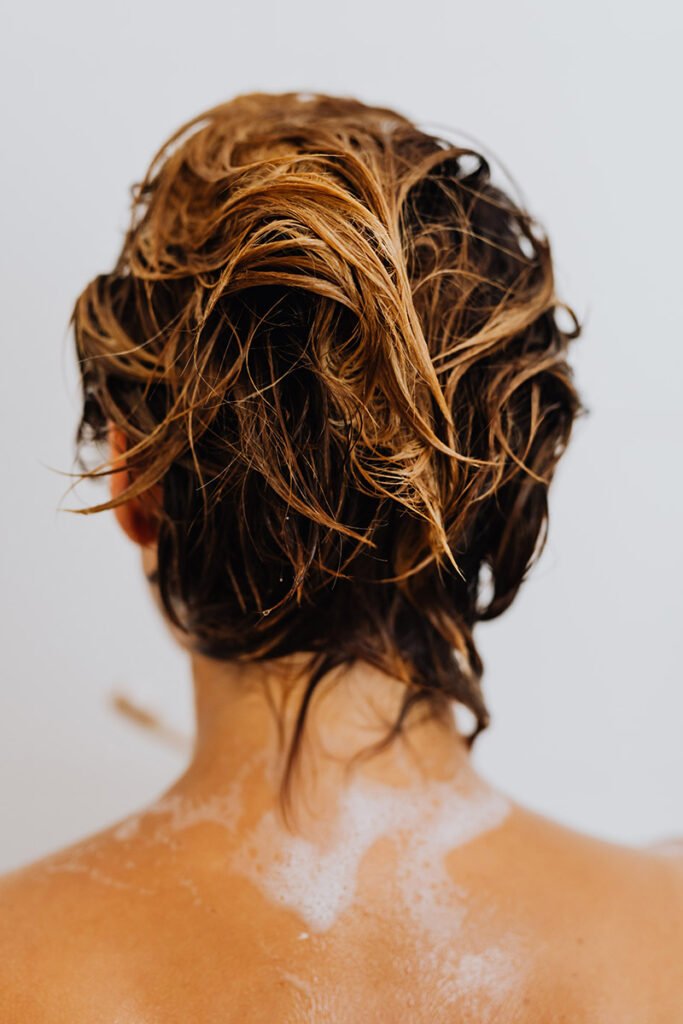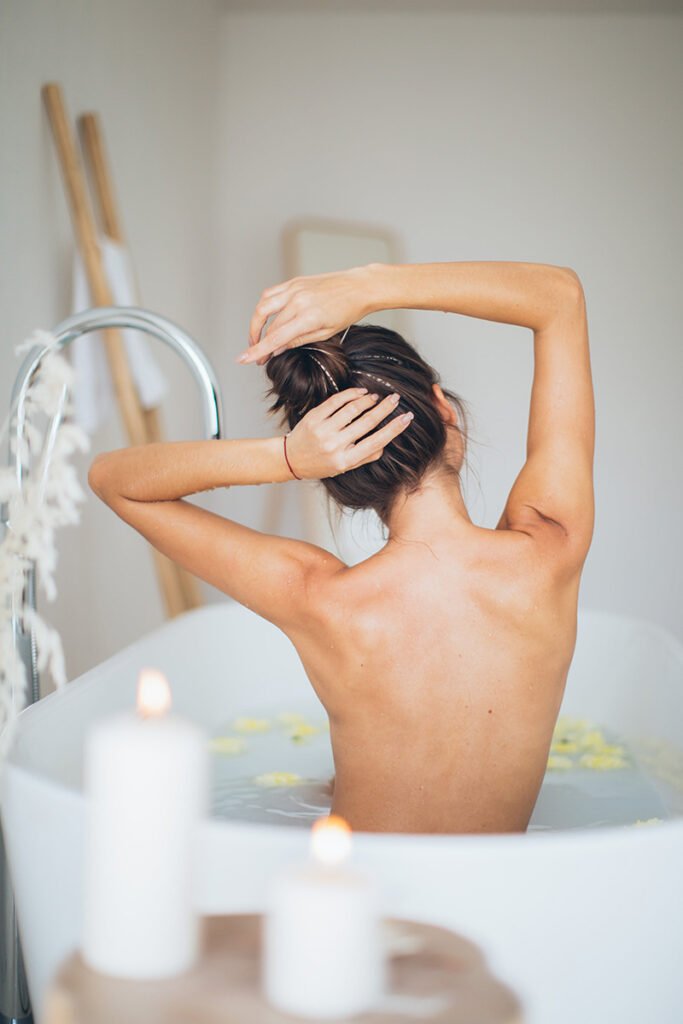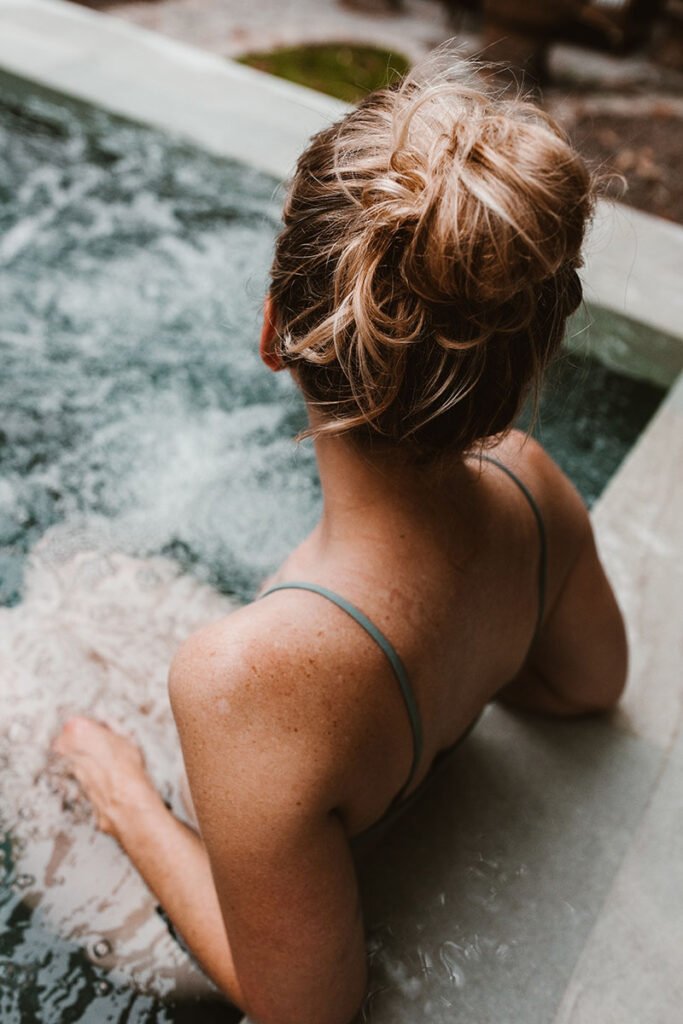Is Cold or Hot Shower Better for Hair Growth: Unlock the Secrets of Stunning Locks
Are you confused about whether a cold or hot shower is better for hair growth? Like, do you think that taking a cold shower will help your hair grow faster and stronger? Or, will a hot shower do more harm than good to your hair?
Well, the truth is that both hot and cold showers can affect your hair growth and hair’s strength in different ways.
In this article, we’ll delve into the science behind the impact of water temperatures on your hair, examine the pros and cons of each, and help you decide what’s best for your mane.
By the end, you’ll be equipped to make a well-informed choice and optimize the health of your hair. So, let’s dive in.

The Science Behind Cold Showers for Hair Growth
Cold showers have been touted as a natural remedy for hair loss, with claims that they improve blood circulation and strengthen hair follicles. But is there any truth to this?
Benefits of cold showers for hair health
According to dermatologists, cold water from the shower doesn’t actually penetrate deep enough into the scalp to increase circulation or stimulate hair follicles. However, cold showering does have some benefits for your mane:
- Seals the hair cuticle: Cold water causes the hair cuticles to lie flat, resulting in smoother and shinier locks.
- Retains moisture: Hot water strips away natural oils from your scalp and hair, leaving them dry and brittle. A cold shower helps lock moisture, preventing breakage and split ends caused by moisture loss.
- Improves blood circulation: Although not significant enough to promote hair growth, the cold temperature can slightly increase blood flow to your scalp, providing it with essential nutrients.
How it affects hair growth
While cold showers do have some benefits for hair health, they do not directly impact hair growth. Hair growth is primarily determined by genetics and hormones, with factors like diet, stress levels, and overall health playing a role as well.
However, maintaining healthy hair through good habits like taking cold showers can indirectly promote hair growth.
By reducing breakage and retaining moisture in your hair strands, you can prevent damage and allow your hair to grow longer and stronger.
Any potential drawbacks
When it comes to the cons of cold showers, there aren’t many. However, since the cold temperature constricts blood vessels, it can make your hair look less voluminous and flatter. For those with curly or textured hair, this may not be a desirable effect.
Additionally, for individuals with medical conditions like hypothyroidism or Raynaud’s disease, taking cold showers may cause discomfort and should be avoided.
Another obvious drawback of cold showers is that they can be quite uncomfortable, especially during colder months. But if you’re willing to tough it out for the sake of your locks, then you may reap some benefits.

The Effects of Hot Showers on Hair Growth
Hot showers are often considered a relaxing and indulgent experience, but can they promote hair growth?
Advantages of warm showers for hair
Contrary to popular belief, taking a hot shower doesn’t actually open up your hair cuticles or make it easier for nutrients to penetrate.
However, warm water can help open up hair follicles, allowing for better cleansing. It also has other benefits:
- Removes buildup: Warm water can help remove dirt and product buildup from your scalp and hair, keeping your mane clean and healthy.
- Relieves tension: A hot shower can help relax tense muscles in your scalp, which can improve overall hair health.
- Promotes blood flow: The heat from a hot shower dilates blood vessels, allowing for better circulation and delivery of nutrients to your scalp.
Impacts on hair’s structural integrity
Similar to cold showers, hot showers do not directly impact hair growth. However, the high temperature can cause damage to your strands
First and foremost, hot water strips away hair’s natural oils from your scalp, leaving them dry and prone to breakage. It also weakens the hair’s protein structure, leading to frizzy hair and split ends.
While a hot shower once in a while won’t cause significant damage, frequent exposure can result in long-term harm to your hair, for example, thinning and hair loss.
In addition to damaging your hair’s structural integrity, hot showers can also damage your scalp. The heat can cause irritation and dryness, leading to conditions like dandruff and dermatitis.
Moreover, for individuals with pre-existing scalp conditions like psoriasis or eczema, hot showers can aggravate symptoms and should be avoided.
Finally, for those with color-treated hair, hot showers can cause the dye to fade faster, leading to more frequent touch-ups and potential damage to your strands.
Precautions to take with hot showers
While the benefits of hot showers on hair health may seem tempting, it’s essential to keep the water temperature moderate.
Too hot or high temperatures can strip away essential oils and damage your hair, so stick to a warm or lukewarm shower instead.
Also, try not to spend more than 10-15 minutes in the shower as this will prevent overexposure of your scalp and hair to hot water.
Finally, if you decide to go for a steamy shower, remember to use gentle shampoos and conditioners that are suitable for your hair type to mitigate the negative effects of a hot shower.

How to Choose the Perfect Shower Temperature for Hair Growth
Once again, the no-one-size-fits-all rule applies here. The ideal shower temperature for hair growth will depend on various factors, including your hair type and overall health.
Factors to consider
If you have brittle or dry hair, it’s best to stick to warm or cold showers. In this case, colder temperatures can help seal in moisture and prevent further damage, while warm water can help open up hair follicles and promote blood flow.
For those with oily scalps or greasy hair, hot showers may be beneficial as they can effectively remove excess oil and buildup. However, it’s crucial to use gentle hair products to avoid stripping away too many natural oils from the scalp.
And then, if you have color-treated or damaged hair, you should also avoid hot showers and stick to warm or cold temperatures since hot water can cause further damage and fading.
Ultimately, the best way to determine the perfect shower temperature for hair growth is by listening to your body. Pay attention to how your scalp and hair feel after a shower and adjust accordingly.
If you experience dryness, irritation, or excessive shedding after a hot shower, it may be time to turn down the temperature.
On the other hand, if your hair and scalp feel clean and nourished after a cold shower, then that may be the best option for you.
Customizing shower temperature based on hair type
Based on your hair type, you may also want to consider customizing your shower temperature. Here are some suggestions:
- Fine or thin hair: Stick to warm or cold showers to avoid too much damage and breakage.
- Thick or curly hair: A warm shower can help open up hair follicles and promote growth, but be careful not to use excessively hot water.
- Color-treated hair: Opt for warm or cold showers to prevent further damage and fading.
- Dry or damaged hair: Stick to warm showers, but try not to stay in too long as it can cause further dryness and breakage.
- Oily scalp or dandruff: Hot showers may be beneficial, but be sure to use a gentle shampoo to avoid over-cleansing.

Additional Tips for Promoting Healthier Hair
While shower temperature can have a slight impact on hair growth, it’s not the most significant factor. To promote healthy and luscious locks, here are some other recommendations to consider:
Proper shampooing and conditioning techniques
There are many misconceptions about how to properly shampoo and condition your hair, which can ultimately affect its health and growth.
However, the rule of thumb is to use gentle hair care products, massaging the products into your scalp and avoiding over-scrubbing or tangling.
Keep in mind that the best shampoo and conditioner for you may vary depending on your hair type and concerns, so don’t be afraid to experiment until you find the perfect match.
Nutritional habits for healthy hair
Maintain a balanced diet rich in vitamins and minerals that support hair quality and health, such as biotin, iron, and omega-3 fatty acids. These nutrients can be found in foods like eggs, spinach, salmon, and nuts.
Also, stay hydrated by drinking enough water throughout the day to ensure your scalp and hair receive enough moisture from the inside out. You can use hair tonic to add extra moisture to your strands.
You can also consider incorporating supplements specifically designed for hair growth into your routine.
Hair loss, for example, can be a sign of vitamin deficiencies, so supplements can help fill in the nutritional gaps. But, as usual, consult with a healthcare professional before starting any new supplements.

Minimizing heat styling and chemical treatments
Excessive heat and chemicals can cause significant damage to your hair, leading to breakage and thinning. To prevent this, limit the use of heated styling tools like blow dryers, curling irons, and flat irons.
If you must use heat styling, make sure to use a heat protectant and keep the temperature moderate. Also, consider natural hairstyles that don’t require heat or excessive manipulation.
Similarly, try to limit chemical treatments like bleaching, perming, and coloring as much as possible. These processes can weaken your hair and affect its growth over time.
Regular trims and scalp massages
While trimming your hair may seem counterintuitive to promoting growth, it’s essential to get rid of split ends and breakage that can hinder healthy hair growth. Aim for a trim every 6-8 weeks.
Additionally, scalp massages can promote blood flow and stimulate the hair follicles, leading to healthier and faster-growing hair. You can use essential oils like peppermint or rosemary for added benefits.
Or, prepare some homemade hair tonic using natural ingredients like aloe vera, coconut oil, and castor oil. Massage this mixture into your scalp for a few minutes before showering to nourish and stimulate hair growth.
Reducing stress and promoting relaxation
Stress can significantly impact hair health and growth. Try to incorporate relaxation techniques into your daily routine, such as meditation, yoga, or deep breathing exercises.
Additionally, make sure you are getting enough sleep to allow your body to repair and regenerate itself. Lack of sleep can lead to hair fall and other health issues, so prioritize getting enough rest.
By considering all these factors and incorporating healthy habits into your routine, you can promote healthy hair growth and overall hair health.

Before You Go
Now that you know the effects of cold and hot showers on hair growth, it’s time to bid farewell to the dilemma. Listen to your hair and adjust the temperature of the water based on your unique hair type, needs, and preferences.
Remember, maintaining a healthy hair care routine, along with a balanced diet, is essential for beautiful, vibrant hair. Share your experiences in the comments below and let us know what works best for you!
Still on the fence about cold or hot showers? Read our other articles on hair care and find more tips and tricks for promoting healthy hair growth:
